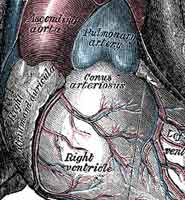The special BHF grants are made every two months to fund research into the causes, prevention, diagnosis and treatment of heart disease, the UK’s biggest killer.
The three grants recently awarded to Bristol researchers are as follows:
£124,825 to Dr Rebecca Sitsapesan in the Department of Pharmacology for an investigation into the role of two molecules, FKBP12.6 and cADPR, in regulating the protein channels through which calcium ions flow. This controlled flow causes the contraction and relaxation of heart muscle cells, and understanding more about these molecules could help in the design of medicines to prevent or correct irregular heart rhythms that are caused by disruption of calcium flow.
£87,258 to Professor Julian Hancox and his team in the Department of Physiology for research into a genetic fault that causes defects in one of the protein channels (see above). This can cause Short QT syndrome, which increases the risk of life-threatening heart rhythm abnormalities.
£145,451 to Dr Russ Jago and his team in the Department of Exercise, Nutrition and Health Sciences for a study of the exercise habits of 500 10- and 11-year olds in Bristol, and the influence of family and friends on these patterns. Observations from this study will help guide future schemes to encourage young people to stay active.

